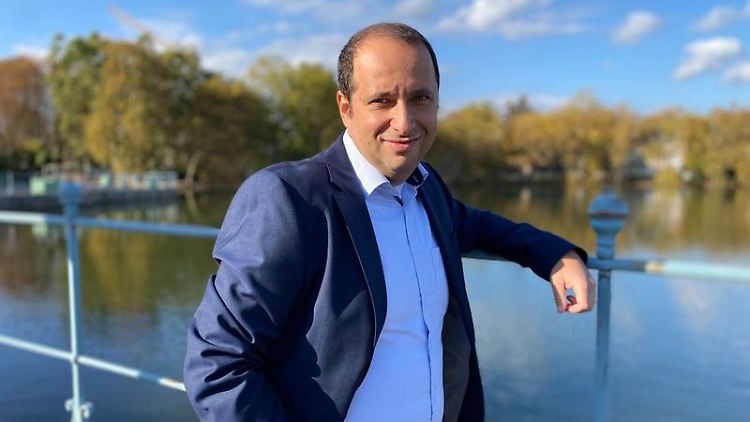By publishing the intercepted conversation of the Bundeswehr officers, the Russians are revealing their interception capabilities. But the message behind the action is more important to the Kremlin than the possibility of continuing to secretly eavesdrop, says Russia expert Alexander Friedman. At the same time, the scandal could backfire for Russia. The historian talks about why the Kremlin still plays this “risky game” and why Germany, of all places, is so often in the sights of Russian propagandists in the ntv.de interview.
ntv.de: The German officers don’t actually say anything surprising in the conversation they listened to. It is no secret that Germany, as an ally of Ukraine, wants to see the Crimean Bridge destroyed. Why is Russia still publishing this conversation?
Alexander Friedman: That was a conversation between specialists discussing a situation the way militaries in different countries do – they just exchange ideas. But since most people in Russia have not heard this conversation, it can misinterpret the propaganda and suggest that the German officers were planning an attack on the Crimean Bridge, which of course is not true. You immediately see a picture of the Second World War in your mind; it is claimed that the Germans now want to continue where their ancestors started in the Second World War. This is an enemy image that is very well received by the Russian audience. It is claimed: We are fighting against the entire Western world, they want to destroy us, and we have to defend ourselves. The fact that the Germans, of all people, are portrayed as the tip of the spear can further underline this image of the enemy, because it follows exactly the ideas that people in Russia already have for historical reasons.

Alexander Friedman has a doctorate in historians. He teaches contemporary history and Eastern European history at Saarland University and at the Heinrich Heine University in Düsseldorf.
What goals does the Kremlin want to achieve with the publication in Germany?
The recording was released on the day of Navalny’s funeral, which was a big topic in Germany. It is therefore obvious that they wanted to distract the public in this country. Numerous influencers who write for the German audience on behalf of Russia – such as Alina Lipp or Thomas Röper – immediately began to convince the German public that the Bundeswehr officers were not simply conducting a technical discussion, but that they were carrying out an attack Russia had planned. They are trying to convince people in Germany that the Bundeswehr is preparing a war against Russia.
What does Russia want to do with this?
This is intended to stir up fears of a Russian response. To achieve this, Russian propaganda tries to build on the pacifist tradition in Germany: For many people in Germany, war is a nightmare anyway, especially a war against Russia. And the Kremlin wants to reinforce these tendencies. Political destabilization is important. There is obviously disagreement within the government coalition on the issue of arms deliveries. By publishing the conversation, Russia is also trying to resolve the pragmatic issue of not allowing Germany to supply Taurus missiles.
And that works?
The maximum of 100 missiles that Germany could deliver would not be decisive for the war. But they could cause big problems for the Russians. And here the question arises as to what extent the publication of this conversation will affect the delivery of Taurus. Because in their conversation, the officers torpedo Scholz’s central argument by saying that everything could be organized so that there are no Germans on site. Scholz’s reasoning as to why he is against a Taurus delivery is therefore at least called into question. So it’s not clear to me how the whole story will influence the Taurus debate.
Do you think that this publication can turn the Taurus discussion in the direction that Scholz still decides to deliver? Then the Russians would have shot themselves in the foot with the wiretapping story.
I believe that Russian expertise should not be overestimated. The Russian leadership apparently does not necessarily seek expert advice when making decisions of this nature. We are dealing with Vladimir Putin, who probably considers himself the most important expert on Germany. He knows the language and thinks he knows about Germany. But his idea of Germany is very specific. He may believe that today’s Germany is no longer an independent state: that the German government does not serve the interests of its citizens, but rather those of the United States. A narrative that is increasingly coming from the Russian side is that the population in Germany should finally shake off this foreign rule. Putin’s logic is that if you spread something like that in Germany, it can actually lead to unrest and destabilization of Germany.
The majority of Germans are against the Taurus deliveries. Chancellor Scholz has made his decision. But we have seen several situations during the course of the war in which he changed his position due to circumstances. I wouldn’t rule out the possibility that we’ll have a completely different situation in two or three months. And then the federal government will have to reassess the situation and perhaps make a different decision. That’s why it’s a risky game from the Russian perspective.
At the moment, however, the Kremlin seems to have achieved its goal with the recording.
The whole thing doesn’t make Scholz more popular with the population. But if it gets to the point where the coalition collapses and there is a new federal government, then it will most likely be led by the Union. And the Union’s position is well known: it would supply the Taurus missiles. Therefore, this scandal certainly weakens Scholz and Pistorius, but it can also become a problem for Russia. However, I don’t think people think that strategically in the Kremlin. You think about short-term successes.
Why is Germany, of all places, so often in the sights of Russian propagandists? You have already spoken of historical reasons. Are there any further explanations for this?
An interplay of several factors is responsible for this. Historical reasons play a big role. Secondly, the idea of German dominance in Europe is certainly important. For many people in the post-Soviet space, Germany is a symbol of Europe. And at the same time, Russian propaganda sees Germany as a weak point in Europe. There is also the idea that many East Germans are still pro-Russia. Germany also has the largest Russian-speaking community in Europe. These are people that propaganda can reach directly in Russian. And another important factor is that no other European state has done as much for Ukraine as the Federal Republic.
By releasing the recordings, the Russians have revealed their interception capabilities. The Bundeswehr will certainly now pay better attention to security. Shouldn’t the Russians have continued to listen in secret, hoping to learn something really important?
Two moments are important here. Firstly, the arrogance of the Russian government, i.e. this idea: We are the best, we can do everything, we just have to show strength. And secondly, the Russians have long been acting openly in many areas. Not only do you eliminate certain people and carry out certain actions, but you also don’t deny your involvement in order to intimidate the other opponents. The point is to suggest the idea that Russia is all-powerful, that it’s better not to get involved with Russia. The idea is to show the West: Nobody can know what to expect from this Russia. Perhaps one is relying on the old ideas of “wild barbarians” from the East, which were still widespread in the German Empire at the beginning of the 20th century. According to the motto: These Russians cannot be predicted, they can be trusted to do a lot. And when you’re dealing with people who are so unpredictable, who are listening in on you and don’t even hide it, then maybe you should leave them alone.
And is the strategy working?
Yes, the fear of war with Russia is definitely present among the German population. I think we sometimes make glaring errors in our analysis of what Russian officials say. They say what they say and we try to find something hidden in it. Because what is being said is so unbearable and unimaginable that one can only shake one’s head and say that it is all just rhetoric. But when Putin says that Ukraine shouldn’t exist as a state, it’s pretty clear. In this case he says exactly what he means.
Does that mean that when the Kremlin talks about a nuclear war with Europe, it should be taken seriously?
There is a frightening example in German history in particular: Hitler announced many of his crimes as early as the 1920s. Many contemporaries didn’t take his words seriously and said: “Well, he wrote that, but who would come up with the idea of implementing something like that?” That’s why you should register what Putin says, but not let yourself be intimidated by it. Clearly, the primary aim of such statements is to intimidate European society. But if such things are already being said seriously, who can give us a guarantee that it won’t actually happen at some point?
Uladzimir Zhyhachou spoke to Alexander Friedman
